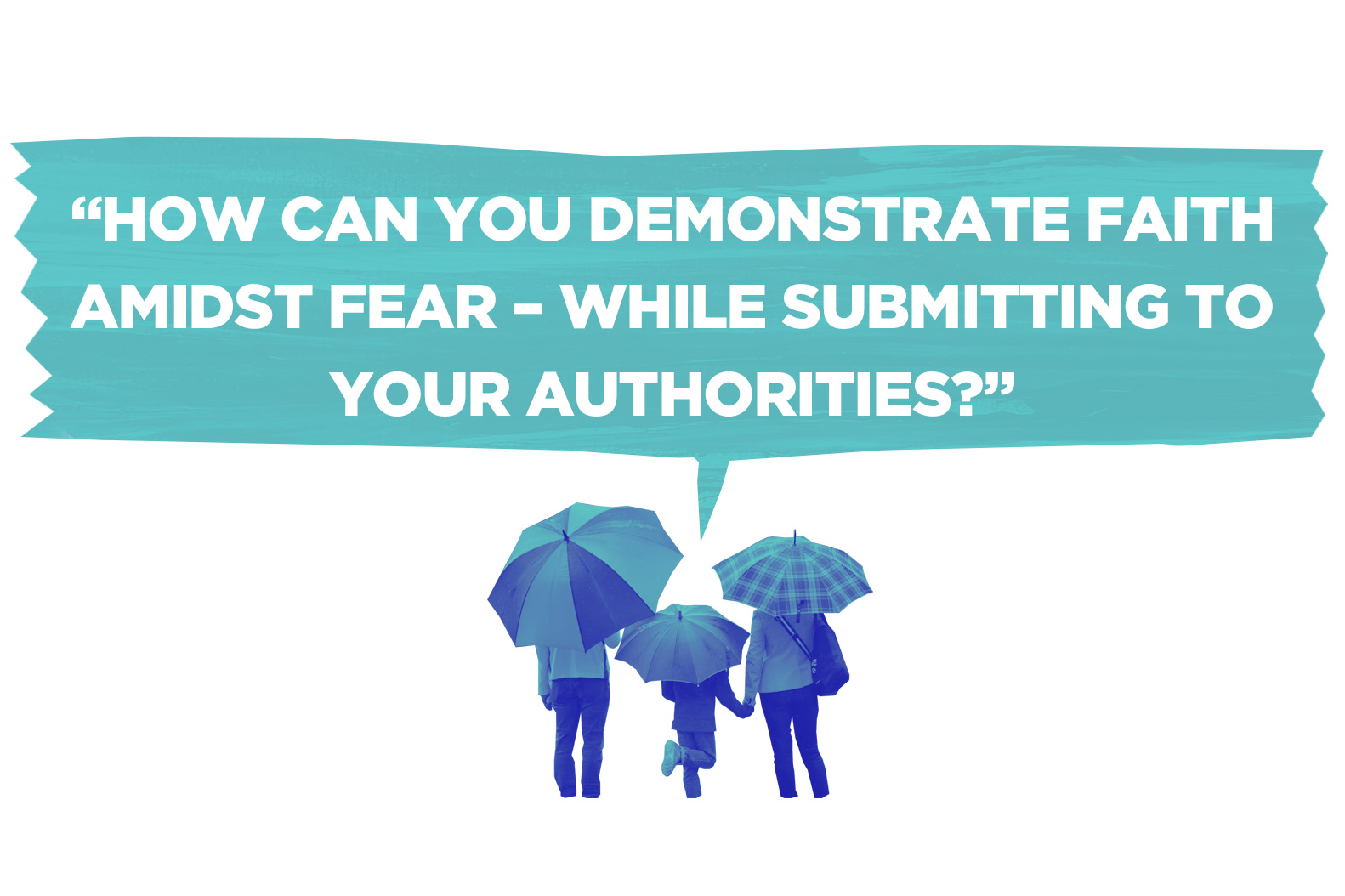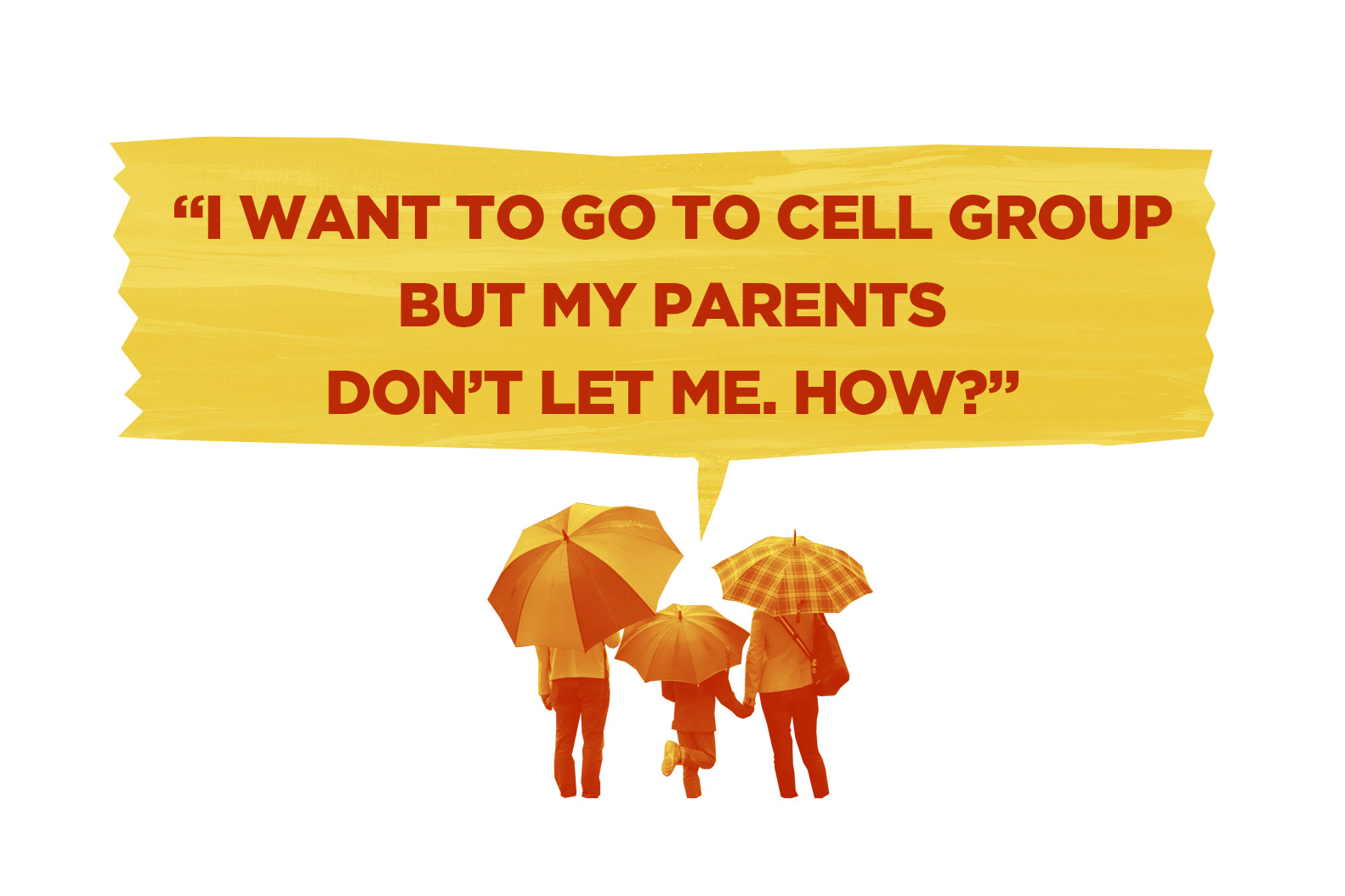As all worship services in churches will be suspended from today until April 30, small groups have become the main source of fellowship for many.
However, some of you might have parents who aren’t comfortable with you continuing to attend a house church or cell.
So, youths and young adults have a coronavirus conundrum.
- How should I respond to my parents if I face opposition in coming to church or attending cell?
- How can I demonstrate faith amid fear, while submitting to authority?
For answers to questions like these, I sat down with a number of youth pastors and leaders to hear about their handles on honour and submission.
PASTOR ZACHARY TAN, Living Sanctuary Brethren Church
Different scenarios require different responses. So rather than a simple “go” or “don’t go” answer, let’s look at the posture of our hearts towards God and our parents.
If our hearts are rightly postured, and we seek to glorify Him in all our actions, we would be able to make the right decisions. Outwardly actions may seem right and good, but they can be driven by the wrong intentions.
One might say: “I want to prioritise God, so I will go for cell regardless of what my parents say because I want to put God first.”
Sounds almost reasonable, but only the person will know what his true intentions are. Do they truly want to honour God or is it FOMO?
Two people can make the decision to go for cell: one may be right in doing so, and the other may be wrong.
Our role is not to judge one another on this; God sees our heart’s posture and intentions. But choosing to honour our parents is always a good place to start.
Standing up for the faith is not simply going to church.
PASTOR ANDREW TAN, Bethesda Bedok-Tampines Church
I would encourage you to listen to your parents. Their intention behind such “rules” is for your good and well-being. Even though they may fear or lack faith, their motivation is love.
The Bible exhorts us to honour our parents (Exodus 5:16) and submit ourselves for the Lord’s sake to every human authority (1 Peter 2:13).
And the Church of Jesus Christ will never be shut down.
By that, I mean the Body of Christ. Not the forms, structures and buildings we are so accustomed to.
Forbidding us to go to church or cell group is not an attempt to get us to deny or denounce our faith (in such instances we are then told to obey God rather than man). Our Christian lives go beyond our weekly services or cell groups.
In Hebrews 10:25, the author urges believers not to give up meeting together but to encourage one another.
However, in that context, the only way to do those things was by meeting physically. Living in the 21st century, we have now many ways to fellowship.
ISAAC ONG, Emmanuel Assembly of God, FOPx
The Bible says man looks at the outward appearance, but God looks at the heart. So you might make this really bold statement like “I gotta go. I do not have fear.” But I would ask you to check what’s really in your heart – what’s that really about?
If we say we want to stand up for the faith, standing up for the faith is not simply going to church.
Standing up for the faith means honouring your mother and father like Ephesians says. Love is patient, love is kind: that is what it means to stand up for the faith.
It’s not just about the gathering of the saints but also the fruit of the Spirit.
Walk in the spirit. The fruit of the Spirit is love, joy, peace, patience, kindness, goodness, gentleness and self-control. These are the things we’re called to live out.
So, before you fight over going or not going to church, would you also consider the rest of the Bible? It’s not just about the gathering of the saints but also the fruit of the Spirit.
Think about what love is, and how we should treat our family.
SARAH KHONG, Bethesda Bedok-Tampines Church
It’s important to hear and understand the concerns of your parents to see if there are workarounds.
Youths can have a conversation with their leaders to discuss alternatives in view of parental concerns, instead of just disappearing from church. Some short-term alternatives include meeting in smaller groups, meeting online or at someone’s place.
Being flexible to change is important. Workarounds beat doing the same thing and hitting a wall. Think out of the box.
 ISAAC ONG, Emmanuel Assembly of God, FOPx
ISAAC ONG, Emmanuel Assembly of God, FOPx
First, sit down and pray. Ask God: “Lord, what is on Your heart, how can I align myself to what You want for my family, cell group, church or myself?” And if the Lord says, “No, I want you to stay at home”, would you be able to be patient?
So it’s not about saying, “Okay, I listen to my parents but I sulk at home, and I hate my family, and I hate this decision.”
It’s about asking the Lord to weigh your heart, and help it be in the correct posture. Because you can stay at home, but not be present. Your attitude might not be good at all.
The most disruptive thing right now would be… a person full of peace in a time of fear.
In the place we’re in today, the loudest noise is not some video of us singing loudly or smoke and lights. These things are great, but the loudest noise in a place where there’s so much fear, confusion, hate and anxiety is people living out love, joy, peace, patience, kindness and goodness.
The most disruptive thing right now would be a person who is loving in a time of hate; a person full of peace in a time of fear.
These things are going to capture nations. They will make people go, “Wait, why are you living like that? Why are you being a person of love? Being a person of peace?”
If your family is so familiar with you always fighting against them, would you make the loudest noise – not by gathering in cell and shouting together – but by staying home and saying this: “I’m going to be a person of peace”?
Because that will disrupt their ideas and thoughts about you and your church – especially about God.
They’ll go: “Wow, there must be really something special about my kid.”
PASTOR ZACHARY TAN, Living Sanctuary Brethren Church
Matthew 12:34 reads: “Out of the abundance of the heart the mouth speaks”. If we watch the words we speak and the things we do, we will get a glimpse of what is in our hearts.
As the world is engulfed in fear, what are the words coming out of our mouths? Are they motivated by faith or fear? Or are they words of faith that are actually motivated by fear?
We do not need to try and show off our faith.
Sometimes we use faith language to cover up our fears: “Aiyah, God sure protect Singapore one, no one will die – in Jesus name!” It sounds like faith, but it may just be a Christian cover for our fears.
Be honest with yourself and God about your fears. Tell Him all your fears, then, like King David, find strength again by turning towards God.
We do not need to try and show off our faith. When we have faith, one that is founded in humility and submission to God, it will show. And the world will see the difference.
SARAH KHONG, Bethesda Bedok-Tampines Church
Continue to go about your activities but with wisdom and caution. For example, if a friend is sick, don’t YOLO and meet (even for awhile) because that’s not wise. Meet online or call instead. Also, you want your friend to be resting when they are unwell, not meeting you.
Faith is about trust and obedience in God – not reckless living.
The relevant questions are then: “What is God calling me to do? How is God leading me to respond in this situation?”
Faith is about trust and obedience in God – not reckless living.
PASTOR KEVIN GOH, Bartley Christian Church
It would mean a lot to your parents if you honoured their decision, even more so if they aren’t believers yet, because they do not understand the significance of going to church unlike believing parents. But we need to trust that our parents have our best interest at heart, regardless of what their decision was motivated by.
This is part of being a good testimony to non-believing parents, and an example to believing parents that you obey God’s word.
Now is a great opportunity to share the hope you have and offer an eternal perspective to this virus situation. How we respond either draws people to Christ or pushes them further.
Staying at home does not mean you lack faith; choosing to go to church does not mean you have more faith.
Staying at home simply allows you to honour your parent’s decision; play your part in flattening the curve while still remaining able to “not give up meeting together” through technology.
When in doubt, my guiding principle is to choose that which would honour God the most. May the Lord give us wisdom on how to handle each situation along the way.
Fear is contagious, but… faith can be contagious too!
IVAN TAN, Hinghwa Methodist Church
Connect with your church community. The Bible makes it clear that we were made to connect not just with God but also others.
Hebrews 10:25 is more relevant than ever – do not give up meeting within the boundaries specified by the authorities. And if physical meetings are not possible, then use technology to stay connected.
We need to connect fears to faith. We can acknowledge people’s genuine concern and fear, but we can also connect them to God by offering to pray for them, or sharing why you have peace and hope in Jesus.
Fear is contagious, but when we connect these fears to God, faith can be contagious too!
Then, take heart. Jesus knew that difficult times would come and He isn’t surprised by it.
In fact it’s written over and over again in the Bible that the believer should expect trials and challenges – that is precisely why Jesus’ promise of peace is as relevant and pertinent as ever (John 16:33).

With temporary measures implemented like the limiting of gatherings outside school and work to 10 people, we’re going to have to remain agile to adapt to changing circumstances.
But we have constants to hold on to in Christ and our fellowship with one another – in whatever form the latter takes.
Christ is with us in this storm, and I believe He’ll teach us many more new things as we glorify His name on new frontiers. After all, when church services resume, these principles still apply!
So, just as our leaders have exhorted us, let us take this opportunity to rise up in faith, trusting that God can redeem crises and inconveniences.
- Do your parents have any concerns about you going to a house church or cell group?
- How have you responded to their decision?
- What is one way you can be a person of love and peace?










